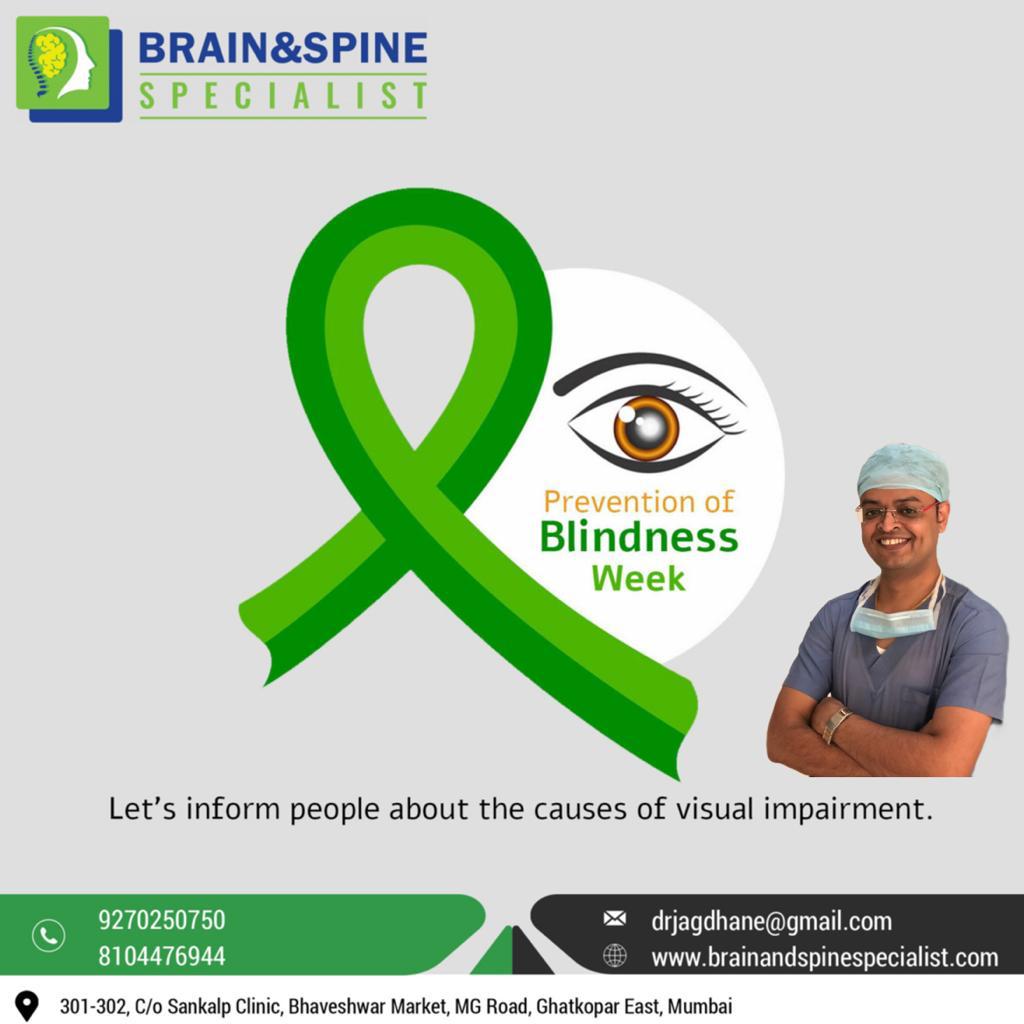Blindness and Neurosurgical Disorders: Understanding the Connection
Prevention Blindness Week is a yearly event that is observed to raise awareness about the importance of eye health and the impact of blindness on individuals and society. While several factors can contribute to vision loss and blindness, neurosurgical disorders are a significant cause of blindness that often goes unnoticed.
As a leading brain and spine specialist neurosurgeon in Mumbai, Dr. Nitin Jagdhane has helped countless patients with neurosurgical disorders that affect their vision. In this blog post, we will explore the connection between blindness and neurosurgical disorders, and how early detection and treatment can prevent vision loss.
Understanding Neurosurgical Disorders
Neurosurgical disorders refer to conditions that affect the brain, spinal cord, and nerves. These disorders can be caused by various factors, including trauma, infections, tumors, and degenerative diseases. Some common neurosurgical disorders that affect vision include:
- Pituitary tumors: Pituitary tumors are growths that develop in the pituitary gland, which is located at the base of the brain. These tumors can compress the optic nerve and cause vision loss.
- Intracranial aneurysms: An aneurysm is a bulge in a blood vessel that can burst and cause bleeding in the brain. If an aneurysm compresses the optic nerve, it can cause vision loss.
- Meningiomas: Meningiomas are tumors that develop in the meninges, which are the membranes that cover the brain and spinal cord. These tumors can press on the optic nerve and cause vision loss.
- Hydrocephalus: Hydrocephalus is a condition in which there is an accumulation of cerebrospinal fluid in the brain. This can cause increased pressure in the brain and compress the optic nerve, leading to vision loss.
The Connection Between Blindness and Neurosurgical Disorders
Neurosurgical disorders that affect the brain and spinal cord can often cause vision loss as a secondary symptom. This is because the optic nerve, which transmits visual information from the eye to the brain, can be compressed or damaged by these disorders.
If left untreated, neurosurgical disorders can cause permanent vision loss or even blindness. Therefore, it is essential to recognize the signs and symptoms of these disorders and seek medical attention as soon as possible.
Symptoms of Neurosurgical Disorders That Affect Vision
Some common symptoms of neurosurgical disorders that affect vision include:
- Blurred or double vision
- Loss of peripheral vision
- Seeing flashes of light or floaters
- Headaches
- Nausea and vomiting
- Changes in personality or behavior
- Seizures
If you experience any of these symptoms, it is essential to consult a neurosurgeon like Dr. Nitin Jagdhane immediately. Early detection and treatment can prevent further damage to the optic nerve and preserve your vision.
Prevention Blindness Week: Raising Awareness
Prevention Blindness Week is an excellent opportunity to raise awareness about the importance of eye health and the impact of blindness on individuals and society. By educating people about the signs and symptoms of neurosurgical disorders that affect vision, we can help prevent blindness and improve the quality of life for those affected by these conditions.
As a leading brain and spine specialist neurosurgeon in Mumbai, Dr. Nitin Jagdhane is committed to providing the best possible care to his patients with neurosurgical disorders. With his expertise and experience, he can diagnose and treat these conditions effectively, helping his patients preserve their vision and quality of life.




